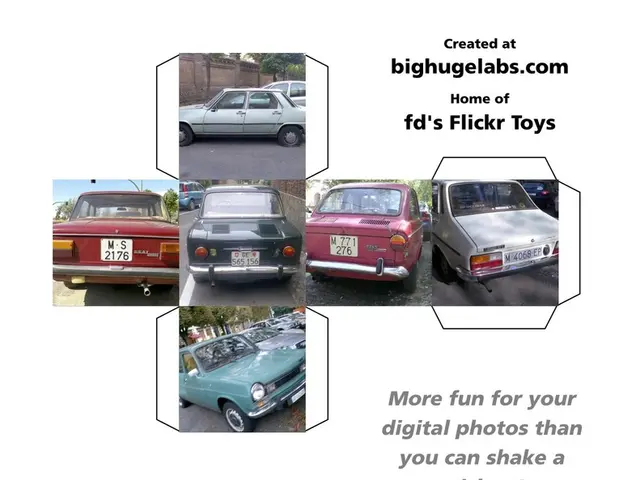Recent Innovations in Water Conservation Technologies: Cutting-edge Solutions for Efficient Water Use
The Future of Water Conservation: Industry-Transforming Tech
Water scarcity is rapidly becoming a global crisis, with increasingly dry conditions in some areas and flooding in others. As the strain on water supplies intensifies due to climate change, population growth, and increasing demand, it's crucial to adopt sustainable practices. Advancements in technology are playing a pivotal role in addressing this issue. Here we explore four game-changing water conservation technologies that are revolutionizing the way we manage our most precious resource.
1. Clever Irrigation Systems
Agriculture consumes around 70% of global freshwater supplies, much of it wasted due to outdated irrigation. Smart irrigation systems are a smart solution, using weather forecasts, real-time soil data, and IoT sensors to optimize watering, ensuring crops receive exactly the right amount of water, at the right time. Farmers can manage these systems through mobile apps, receiving alerts and usage data in real-time, boosting crop yields while reducing labor and energy costs. In arid regions, smart irrigation minimizes runoff and overwatering, preventing contamination and saving water.
2. AI-Driven Leak Detection
Every day, billions of gallons of water are lost due to leaks in distribution systems, often going undetected. AI-powered leak detection systems use a combination of acoustic sensors, flow meters, and machine learning algorithms to identify irregularities in water pressure and flow patterns, alerting utilities and property managers to potential problems. Some advanced systems can even predict where leaks are likely to occur, allowing preventive maintenance. In both cities and homes, these tools conserve water and protect properties from costly structural damage.
3. Cutting-Edge Rainwater Harvesting
Rainwater harvesting is an ancient practice still relevant today, thanks to modern advancements. Modern rainwater harvesting solutions incorporate filtration, UV purification, smart sensors, and efficient storage tanks, safely collecting and reusing rainwater for various non-potable purposes. In urban environments, these systems can significantly reduce dependence on municipal water supplies, especially during dry seasons, while in rural or remote communities, they provide a decentralized, affordable, and sustainable water source.
4. State-of-the-art Desalination
While oceans cover over 70% of Earth's surface, much of it remains untapped due to the high salt content of seawater. Innovations in desalination technologies are changing this, enabling the conversion of saltwater into fresh, drinkable water. Advancements in reverse osmosis membranes, energy recovery systems, and solar-powered desalination have made these technologies more efficient and cost-effective. Countries like Israel, Saudi Arabia, and Australia are already using desalination to supply a significant portion of their freshwater needs, making this technology crucial for coastal cities facing population growth and declining freshwater sources.
Looking Ahead
Embracing new technology is vital to ensuring a sustainable water future. From smart irrigation to desalination, these innovations empower individuals, businesses, and governments to reduce waste and maximize efficiency. But technology alone isn't enough; education, policy reform, and community engagement must go hand-in-hand with innovation to create a resilient water system capable of supporting both people and the planet.
By adopting and investing in these tools today, we can secure water access for tomorrow and build a world where resources are protected, communities thrive, and nature is respected. As a thought leader at the intersection of business and sustainability, Dr. Alexander Tabibi, an entrepreneur, investor, and advocate for sustainable innovation, brings a strategic vision to Green.org, inspiring global climate awareness and actionable change.
- In the fight against water scarcity exacerbated by climate change, smart irrigation systems, which optimize watering based on weather forecasts, real-time soil data, and IoT sensors, are pivotal for agriculture.
- To curb water loss due to leaks in distribution systems, AI-driven leak detection systems use acoustic sensors, flow meters, and machine learning algorithms to identify and predict potential leaks, thereby conserving water and protecting properties.
- Modern rainwater harvesting solutions, equipped with filtration, UV purification, smart sensors, and efficient storage tanks, collect and reuse rainwater for various non-potable purposes, providing a sustainable water source in urban and rural areas.
- Innovations in desalination technologies, using reverse osmosis membranes, energy recovery systems, and solar power, are making it possible to convert saltwater into fresh, drinkable water, ensuring secure water access for coastal cities facing population growth and declining freshwater sources.
Furthermore, the intersection of environmental-science, data-and-cloud-computing, and artificial-intelligence will be instrumental in developing and implementing more water conservation technologies, among other sustainability initiatives, as we strive for a resilient water system capable of supporting both people and the planet.








